Everson v. Board of Education: Examining Constitutional Rights Impact
VerifiedAdded on 2023/04/11
|6
|969
|479
Case Study
AI Summary
This case study delves into the 1947 Supreme Court case Everson v. Board of Education, which addressed the separation of church and state under the First Amendment. The case originated from Arch R. Everson's challenge to the Ewing Township school board's funding of transportation for students attending parochial schools. The Supreme Court ultimately upheld the lower court's decision, stating that the funding was universal and did not discriminate against any particular religious group. The ruling emphasized the importance of neutrality, preventing the state from either favoring or discriminating against religious institutions. The analysis explores the arguments presented by both sides, the Court's reasoning, and the lasting impact of the decision on the interpretation of the Establishment Clause and the balance between state and religion. Desklib provides this and many other solved assignments for students' reference.
1 out of 6
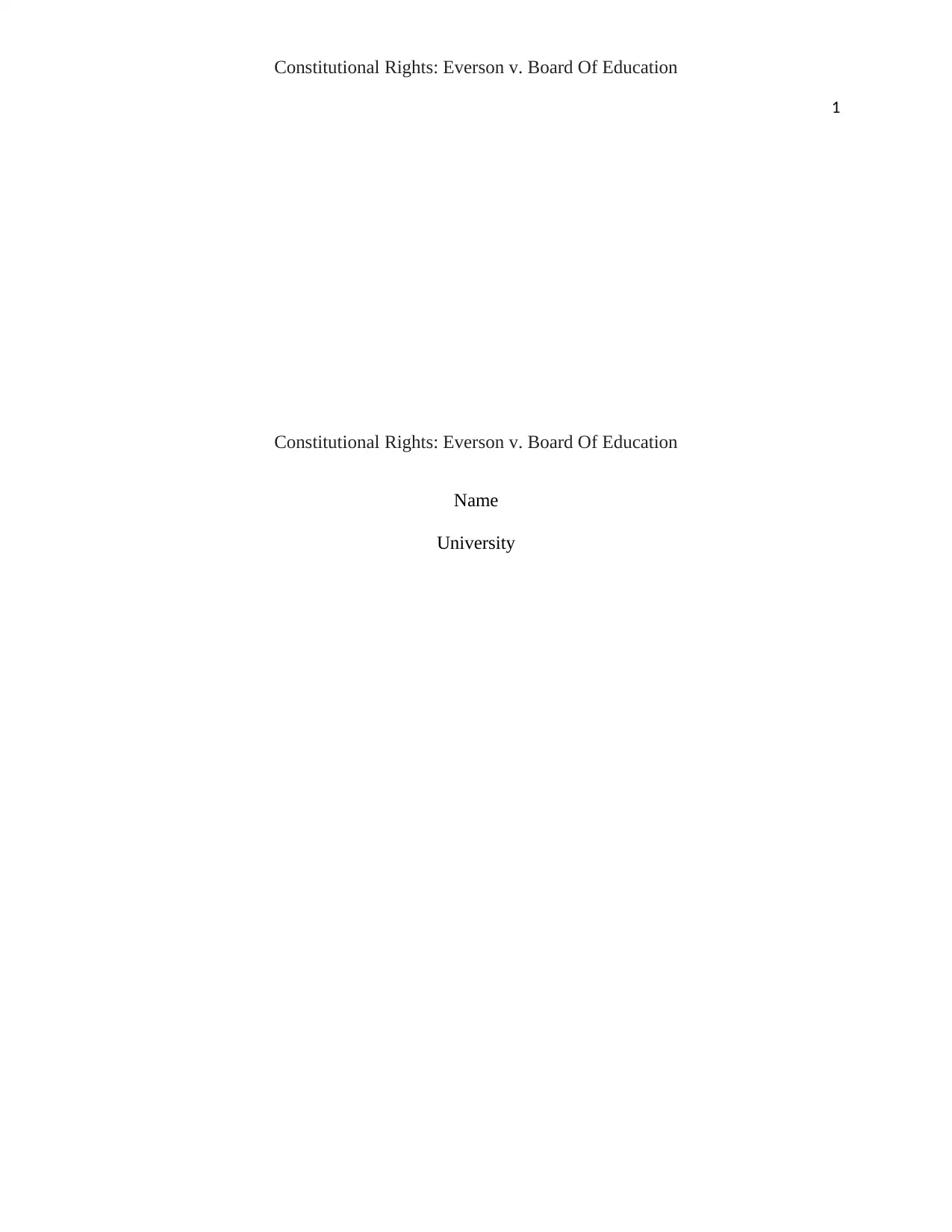
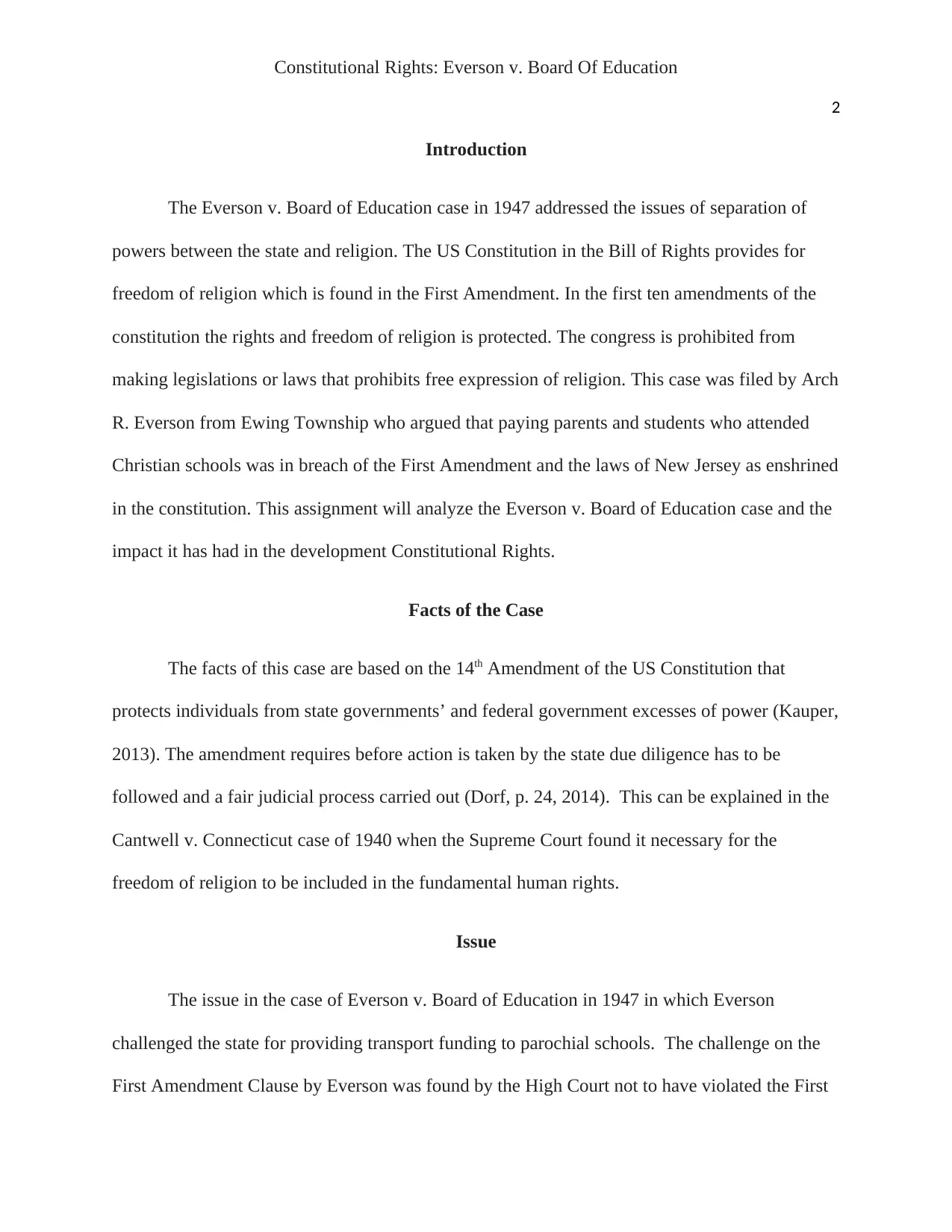
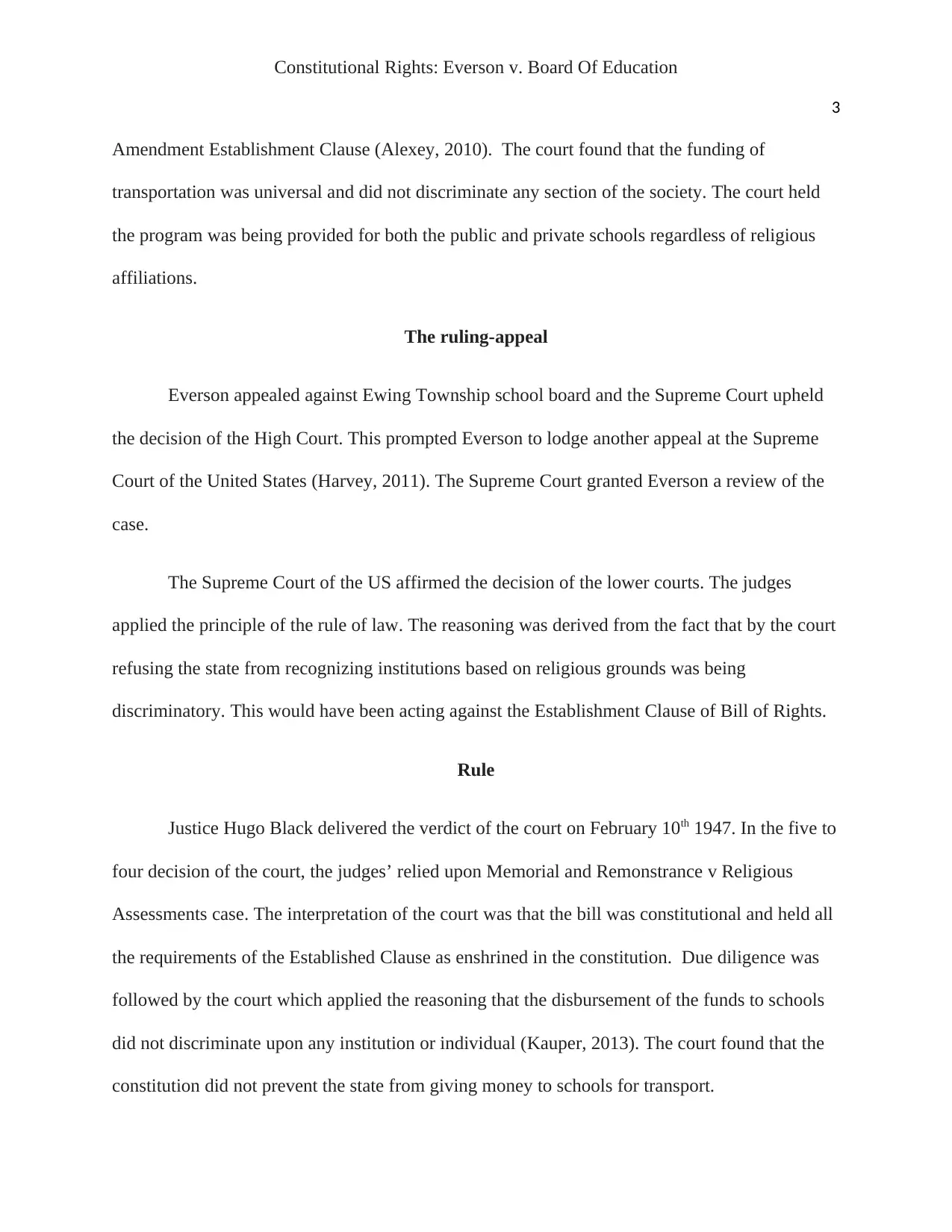
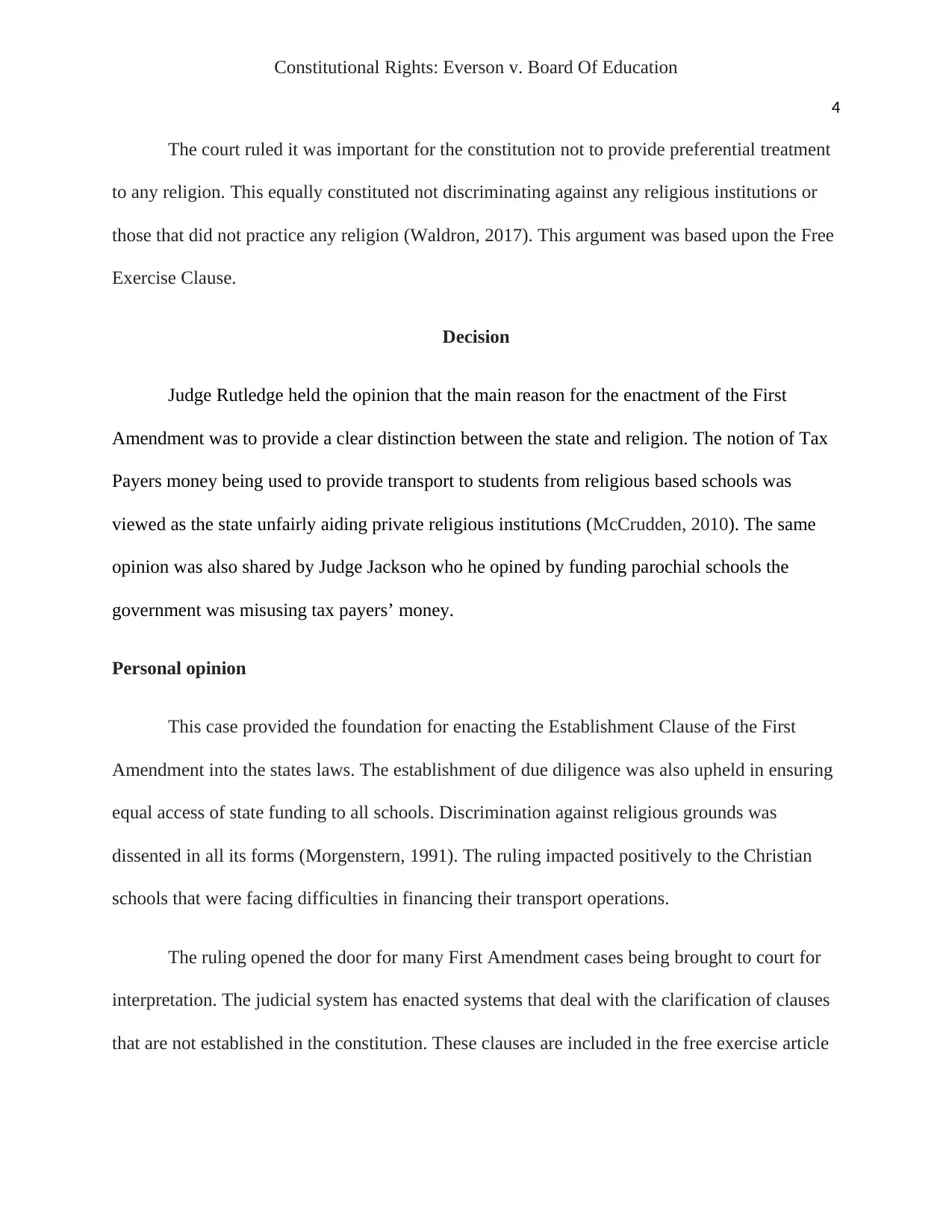
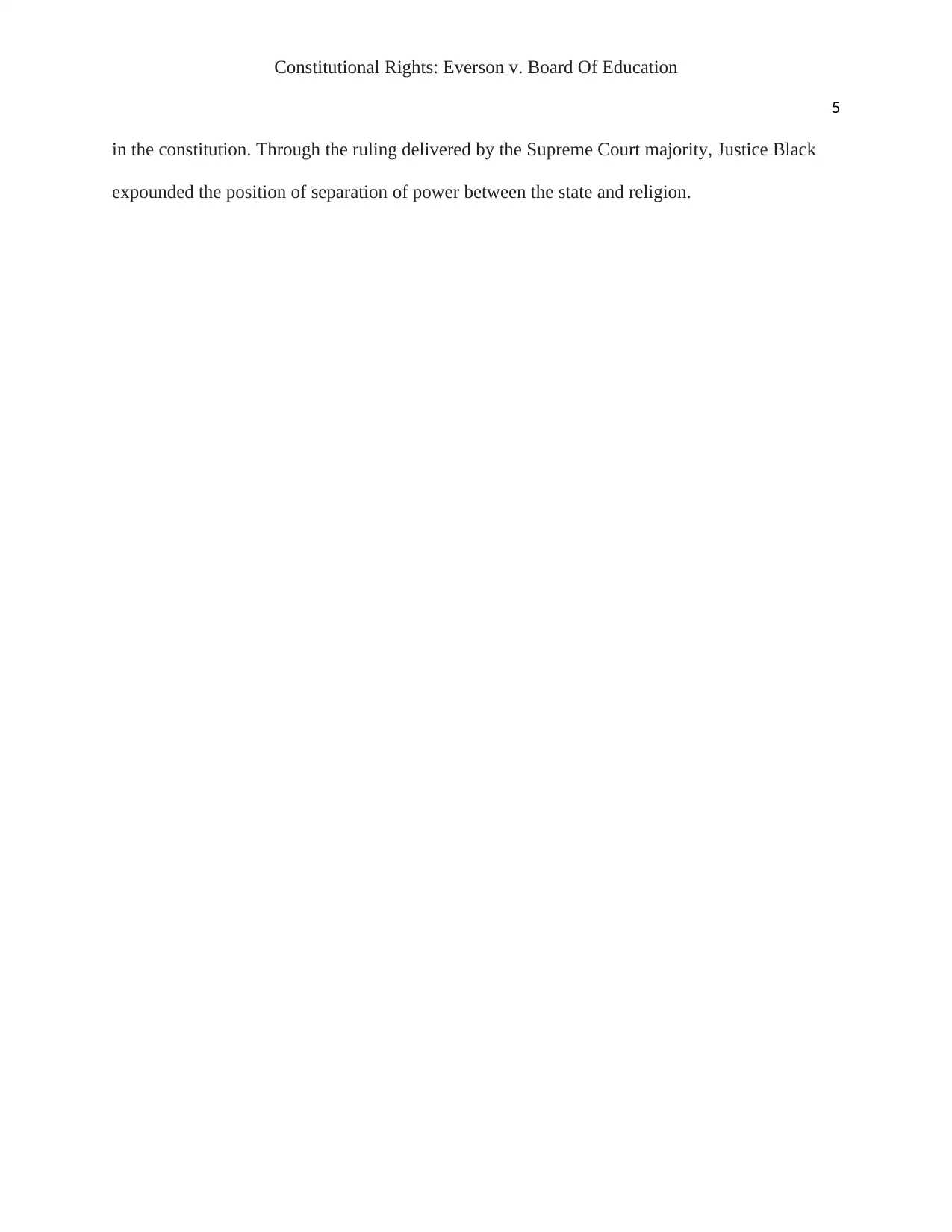
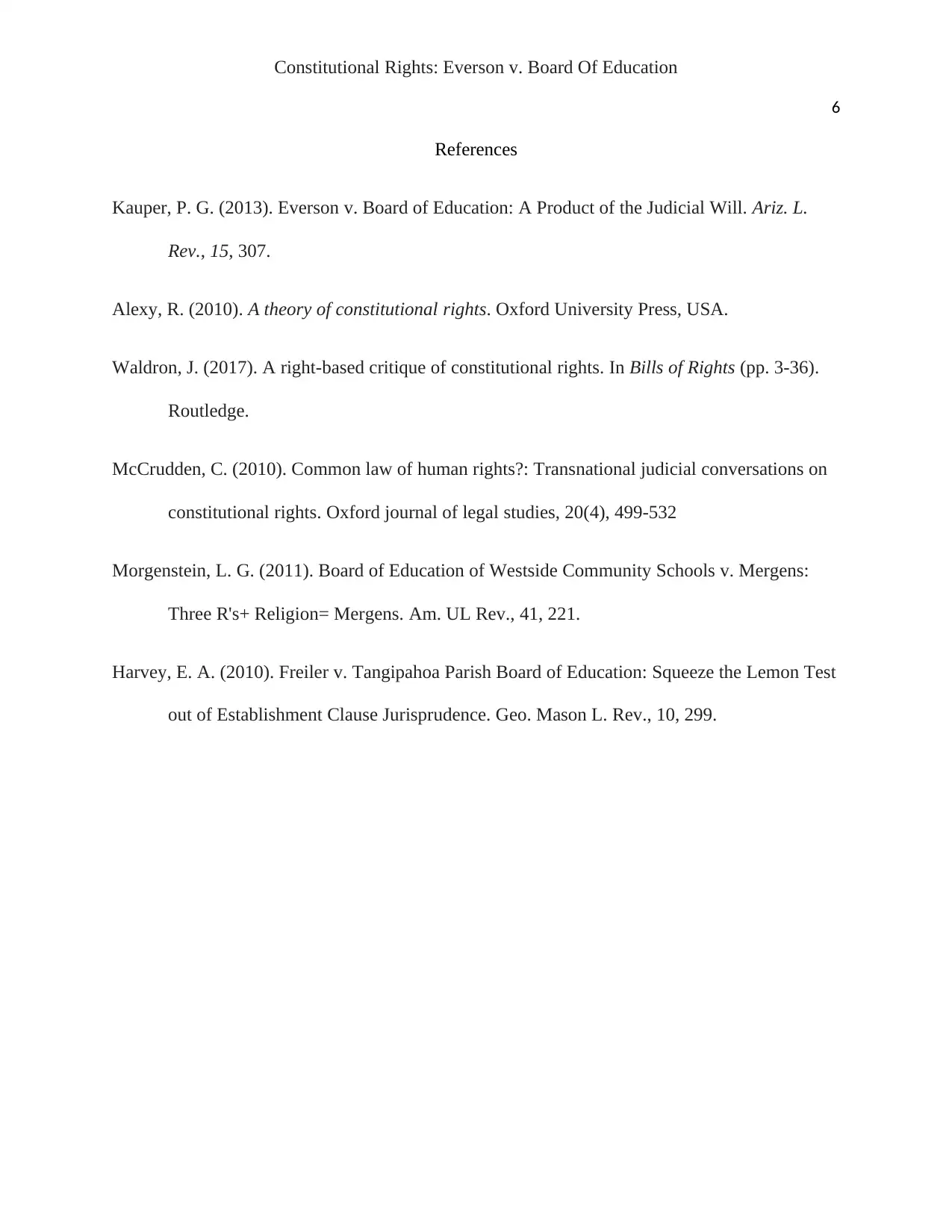






![[object Object]](/_next/static/media/star-bottom.7253800d.svg)